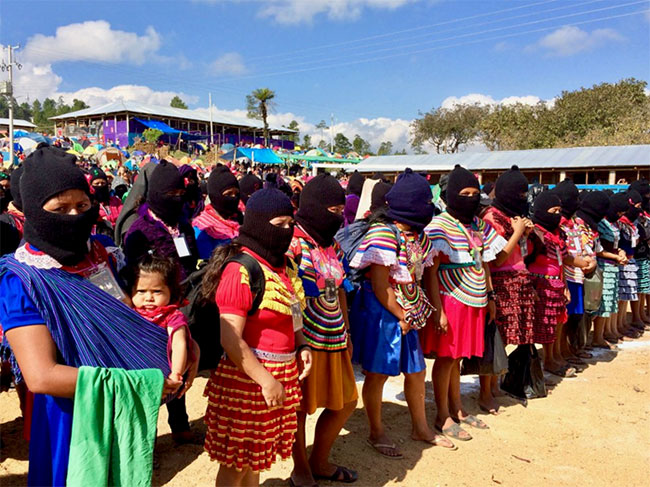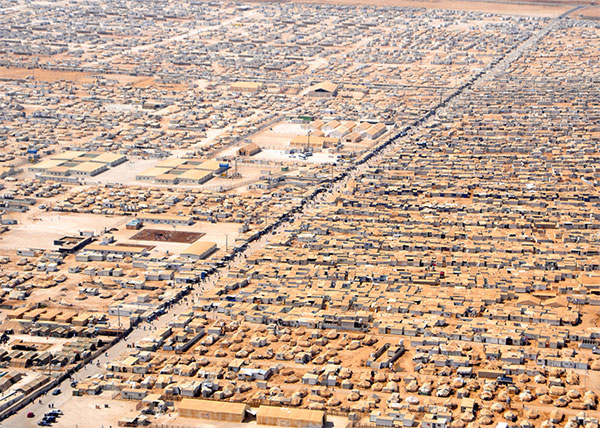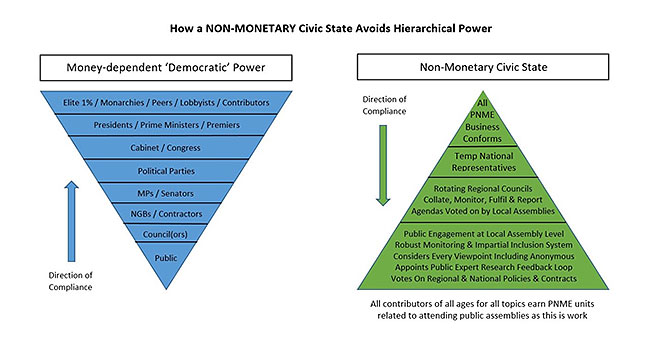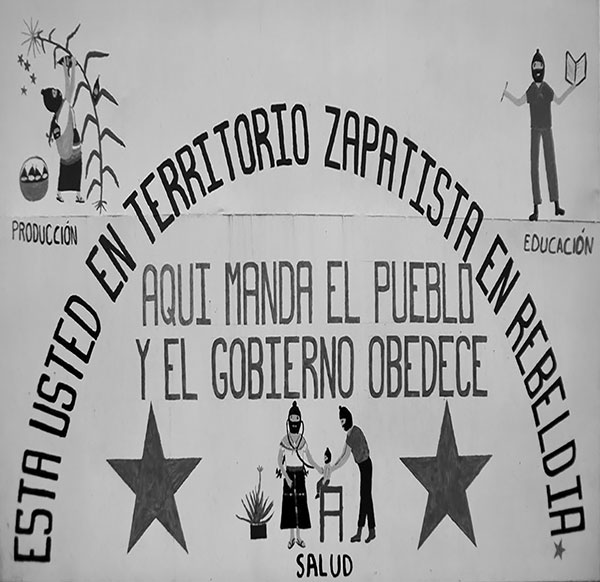Wikipedia lists the number of public protests this century as:
84 public revolts and uprisings.
86 national anti-war / austerity and human rights marches.
38 national and international student protests.
461 national and international demonstrations for specific issues: racism, sexism, anti-corruption, women’s rights, anti-occupation, pro-democracy, independence and climate action.
This totals 669 movements of public outrage occurring in most of the 195 countries that make up the global population. Some of those listed repeated annually over a number of consecutive years and some recurred spasmodically over two decades; a few conflicts overlap and many are unaccounted for in these reports. This does not include military conflict. Wikipedia also lists 535 riots.
There has never been such a thirst and desperation in human history for people to understand how to take back control of our environment, future prospects and survival. In the face of such stark efforts, costing countless people the ultimate price for apparent failure, it is no wonder most are nonplussed as to what their immediate options are. With every intrusion of privacy by dictators, military and police-states, drug gangs, and western democracies – by stealth policies and privatisation of the commons; gearing up for control of people’s individual finances and renewed sovereign rule – people everywhere are disempowered. Add to this the new Cold War and national protectionism endorsing international hostility and political gamesmanship; dividing nations and citizens of those nations against each other, by gentrification and inflation policies on a grand scale; ghettoising communities; systematically dissolving public, social and health care services; reducing workers rights. These incessant crises are manufactured to groom the populace into dependency upon the most unscrupulous economic dictators as our only hope for survival. Attack is once again the only form of defence.
The ever increasingly resourceful disenfranchised population, forced into this seige-mentality and more exhaustive workloads, just to function, are politically goaded to blame each other to deflect resentment from the source of this disengagement. As a result, many have risked and lost lives, family and home to find a way through the chaos. Despite trends towards increased bigotry, complete strangers continue to welcome one another into their countries and homes. Wherever travellers roam they invariably encounter people who care and are willing to share their last provisions with them, despite differences in race, nationality, beliefs and culture. It is obvious to everyone, we have the wrong people controlling our world; that everyday people everywhere need to form a mutually cooperative global society to address global issues that nationalism and money will never solve in time. And with global temperature increases being ignored, this is THE ONLY watershed opportunity for humankind. So, how rapidly can we change it? Is it necessary for us all to agree, to drop our differences and conform to some single ideological stance?
Time for Civic State
Some propose a better distribution of wealth, or changing government to more socialist-oriented policies, would go a long way. Older failed systems now seem preferable again, since politics has done a u-turn in its historical narative and values. But such proponents have no practical solution to accommodate nations with differing regimes. This said, it is worth looking at the number of ‘Left’ movements that succeeded in altering former centre-right and right wing governments, this century. Some headway was made, but most either failed or compromised their standards to maintain power in the face of egged-on right-wing bigotry, sanctioned by western democracies. Syriza in Greece, The Five Star Movement in Italy and Pots n Pans Revolution in Iceland are examples of former regimes overturned, but ultimately collapsed. Podemos in Spain is a current example of sustained and compromised socialist-oriented policy. The much maligned Zapatista movement, running Autonomous Municipalities in the Chiapas region of Mexico, are the longest running and on-going form of local independent governance, within the national custodial territory of an overtly corrupt and hierarchal ‘democratic’ government. They operate impartial non-sexist rights and ‘horizontal’ direct democracy. Their black balaclavas – once worn under Subcommander Marcos to protect identity from warring government forces – are now more symbolic, to represent and maintain anonymity in their councils public decision-making.

Ultimately, all systems fall foul of having to accommodate the cut-throat effects of the global economy – money the prime obstacle. Even successful public-led authorities in peaceful communities face this issue. For a description of how to bypass the monetary system to form a Parallel Non-Monetary Economy (PNME) and how it would immediately alter personal, commercial and political choices – see the illustrated supplemental posts, discussions and documents featured here.
In this article we will concern ourselves with how the application of the Parallel Non-Monetary Economy can establish and influence the functions of a civic state, crucially REDRESSING CORRUPTION, CENTRALISED CONTROL OF PERSONAL REVENUE or INCOME & PUBLIC SPENDING.
The extent of work people continue to perform without support surpasses the amount of formal paid employment in the world, especially since neoliberal ‘austerity’ tactics and global monopolisation turned the whole labour force into a gig economy. It is said openly that charitable and voluntary work are the backbone of the British economy, without which it would collapse and the country would cease to function. It is almost there. With over thirty years experience in voluntary movements, advocacy and training, I have seen the rise and fall of many noble initiatives fuelled by the motivations and ingenuity of everyday people. Yet, even when these people benefit society and official state – in public services, health, social care and the environment – I’ve seen them undermined and demoralised through the lack of the most basic personal understanding and support. Sometimes through needless personal dynamics, but also through systematic and underhanded sabotage by public authorities. I had the displeasure of resigning as a homelessness advocate, after hearing at their AGM that the local council employing me had sat on £2M (ringfenced for the homeless) gathering interest in an off-shore bank account over five years, while they watched elderly, sick, parents and children desperately perplexed at where their next shelter, meal or safe environment was going to come from. Every one of them suffering physical and mental illness, freezing temperatures, abuse and animosity, humiliation of begging and often untimely death. The extent of waste and embezzlement of UK taxes and politicians’ expense claims in comparison is obscene, yet many of these official organisations recently moved to deprive thousands of passionate volunteers (supporting at their own expense) even the refreshment of a drink and biscuit. Hyperbole? The same governance meetings held socials and buffets, while they discussed how to tactically misreport and undermine voluntary and service-user input, whilst pressuring trusting conformists to present a glowing picture of support at their annual services-forums, for their glossy full-colour brochures.
It is blatantly obvious that everyday people can run things much better than any hierarchal State. State rarely represents public interests and effectively acts as an embezzling and personal-enterprise process, especially during times of extreme crisis. What kind of people do that? Criminals. Criminals who now work towards cancelling the Human Rights Act, outlawing protest and removing voting rights by imposing an ‘approved’ photo-identification process. When western democracies take lessons from Trump how voting processes can be tampered with, as effectively as dictators and military junta control and dismiss voting processes by force, people should be alarmed at the level of desperation and intent. Some will argue, without State in western democracies people would have suffered far worse during the recent economic crises and the Covid-19 pandemic, but the actions of State are rarely questioned beyond the immediate. No studies seem to emerge from other sources evaluating how another party, house or policy may have handled things differently. No law seems to hold representatives to account for misrepresentation and embezzlement, profiteering, or subjecting the public to unnecessary suffering, fatalities and demise of industry. While people indulge their selfish uninformed whims in the deceptive game of personality politics, countless thousands, even entire populations, pay the highest price for ignorance and indolence. And ultimately, we all pay. The only redress for crimes against the public and humanity seems to come in the form of mocking, after a proven ‘criminal’ has secured their newsworthy name, personal career options and pension. So, what holds us to this abusive system? Chiefly those controlling money, but with it the systematic dismantling of opposition to State. In every institution, State has become the enemy of the people.
Horizontal Direct Democracy
Direct democratic processes exist in various State-led democracies. Switzerland’s democratic government have a process where any citizen has the power to alter laws and processes of State. India has various communities where the mayor has to hold public assemblies to decide on local policies and use of State funds. But none of these situations ever replace the hierarchical system of government, since money and the global economy are the controlling factors. Can money and the restrictions of national economy be bypassed?
Switzerland is also home to the Swiss WIR, an alternative circular economy set up for SMEs to act parallel with but independently from the monetary economy. What eventually became WIR Bank was originally set up by a business collective to counter the financial effects of the 1930s depression. It is now a purely electronic form of virtual credit exchange between participating businesses and its successes have made it stand out as a serious contender in comparison with money. Its only setback is that it is limited to businesses within the circular economy and that the WIR Bank set its virtual value equal to the Swiss Franc so it can act in dual-currency transactions. But many feel this is its hindrance. It restricts the business the WIR is able to do within and without the circular economy, which some prefer as a safeguard, but its effects on the Swiss monetary economy are noteworthy.
By 2017, “WIR… now has over 60.000 users: [17% of total Swiss businesses. Trade in WIR has a share of 1-2% of Swiss GDP];” now with an annual turnover of two billion CHF. Stable increase and maintenance in contrast to the instability of the monetary economy and downturn in employment figures. During the Covid-19 outbreak companies could apply for zero-interest loans of up to 500,000 immediately, guaranteed by the WIR Bank. “WIR Bank also participates in the ‘COVID 19 credit’ aid program. After two and a half working days, 150 applications were approved by WIR Bank and loans of over CHF 21 million were made available. For loans that exceed the amount of CHF 500,000, 85 percent of this is secured by the Confederation, and WIR Bank participates in the remaining 15 percent. In addition to the ‘COVID-19 loan’, customers of WIR Bank also benefit from the free instant loan of 10,000 WIR, which is already included in the SME package.” Bruno Steigeler (WIR website blog March 2020). Where did it all come from? Nowhere. And when repaid it returns to nowhere.
So, WIR users significantly supplement the burden on the Swiss economy using a self-created virtual abstract currency. Yet its equivalence with the monetary economy means what they are able to achieve is limited and subject to volatile economic influences of the CHF and global economy. Imagine what it could achieve if the collective decided to de-couple it from the CHF and re-value it to out-perform the monetary economy by simple agreement. Not to give it a greater monetary value, but collective agreement on what a purely abstract numeric system could achieve. This takes some projected calculations and creative thinking, but in principle it would likely expand the circular currency beyond its current geographical location . It would not replace money, but it would survive no matter what happened to the monetary economy, its achievements limited only by the extent of the independent activity of its members. This freedom from the artificial valuation of money in the global market could make it spread globally, altering the balance of power in participating nations as each one adopted its own version of the virtual currency. How do you think businesses would respond to being able to boost sales for something that is inflation-proof and can be created from nowhere? But the WIR is not the answer. To replace money, it would have to be available to everyday people and pay for things currently available in the monetary economy. The Swiss WIR is a market-tester for this concept that shows favourable tangible process and results.
The real zenith would be to have an abstract system that would render everything FREE of material value. This sounds now like a giant leap of the imagination, but many astute authors have calculated it being closer than ever before, especially since neoliberal economics has effectively rendered the costs of material things as near to zero as it can, and pricing as an abstract process, to maintain economic control for the 1%. They simply make it up as they go along. SEPARATING FROM THIS CONTROL IS NOT ONLY POSSIBLE BUT CENTRAL TO OUR SURVIVIAL.
It is no giant leap for the general public in any country like Lebanon, Haiti, Kuwait, Yemen, Darfur, or even giant refugee cities to unilaterally adopt the Parallel Non-Monetary Economy (PNME) overnight, remove poverty and start to prosper and build infrastructure without any monetary dependency, even as an independent self-contained circular economy. The best way to safeguard from central control and abuse is through a civic state.

All that is needed for the PNME to replace money everywhere, is for it to be a more attractive market to those dealing in the monetary economy and for everyone to see what it achieves. Seeing is believing. With new established global technologies virtually everyone uses, we are now in the position to say goodbye to ANY need for a material value system and even material form of exchange. REPLACING MATERIAL EXCHANGE VALUE AND CURRENCY FOR AN ABSTRACT VIRTUAL SYSTEM REMOVES THE MENTALITY OF MATERIAL VALUE. To illustrate: when someone uses a combination lock to gain access; or a person competes for points to win a prize; or plays Bingo; the numbers are entirely unrelated to the value of the reward, yet they employ easily understood abstract numerical systems. Coupling an abstract virtual system to activities or ‘work’ every living person does, by nature and choice (removing the distinctions between formal and informal labour) makes economic security a self-generated process – replacing monetary dependency and control.
Because the PNME needs no pre-existing source, it can be adopted unilaterally by any geographical community, industry, or global campaign collective: (a list of such organisations mentioned in and approached through the book ‘A Chance For Everyone: The Parallel Non-Monetary Economy’ can be found here). But broader benefits are achieved if the general populace assemble to examine and adopt it, to take back collective control of global industry, national and international agendas and establish non-partisan political decision-making and accountability. To do this, it needs to establish and maintain a de-centralised system.
Avoiding Hierarchy and Corruption

Firstly, the words ‘government’ and ‘authority’ will change from their hierarchal meaning to that of representational accountable management. They will be public servants.
Core elements of horizontal direct democracy:
LOCAL PUBLIC ASSEMBLIES
1 – Local Public Assemblies can be part of the everyday function of any size of community. They can be held in small groups or large auditoriums with rotating facilitators who show independent impartial thinking and a track record of empowering those less vociferous.
2 – Local assemblies can publish agendas in advance for any individual with an interest in such topics to attend and earn the agreed PNME rate for contributing this work; this can be random and people able to come and go freely with successive subjects.
3 – Assemblies must maintain a robust impartial process of voting, including anonymous suggestions, which will then be fed through the consulting process for public examination and votes; it must be mandatory to properly report, explore and clarify every individual suggestion, creating a pool of opinions to address.
4 – Local assemblies can arrange, publicise and collate any subsequent research and knowledge to be disseminated for further consideration before actions are voted upon.
5 – Public voting on various subjects can be random, this ensures that not only people with vested interests have influence over decisions. If people try to influence decisions by inviting attendees to vote, it should become apparent at a local level and the fact that individual opinion gives people equal power should somewhat counteract this. If such coercing becomes known, that person and participants can be banned from earning PNME units for their attendance, and/or from attending assemblies for a period, whichever society decides. This practice can be also be outlawed. The real power of direct democracy is in disparate people upholding their common right and process.
REGIONAL PUBLIC ASSEMBLIES
1 – Facilitators for Regional Assemblies, speakers and admin can be voted in by local assemblies, based on track record for integrity to the process.
2 – Such assemblies can update attendees with achievement reports on local decision-making, for all communities to learn from and consult with each other.
3 – Regional assemblies can report activities of the PNME in public accounts and prepare voting and consultation on regional actions.
4 – Agendas for regional needs can be collated, examined and disseminated for the LOCAL assemblies to vote on and feedback decisions; then enact the decisions of the majority. This makes the regional assemblies subject to the local voting system.
NATIONAL REPRESENTATION
Existing public buildings and processes can be used for this including parliaments, councils and congress, EXCEPT that representatives of the national public interest…
1 – are temporary assignments;
2 – have NO political allegiances as party-politics is outlawed, meaning all individuals are VOTED IN FOR TRACK RECORD OF INTEGRITY and effectiveness in representing others, in that role;
3 – are not allowed to have ANY third–party business interests (or relatives) that are connected at any given time to the actions of government. If they do, they would stand down for a given period or not be allowed to propose contracts for such activities; (It may be possible to make these temporary appointments so rewarding that they need no other income than their other abstract daily activities and are banned from any other formal employment or consultation while in office).
4 – remain individual representatives with no party to support or argue against them, but they gain the VOTED SUPPORT OF THE MAJORITY OF THE POPULACE by carrying out their decisions;
5 – will show track-record of forming a cooperating accountable body to fulfil the public will and retain transparency and integrity;
6 – will uphold publicly voted terms of industry and engagement of the PNME, monitored collectively and internationally;
7 – will be immediately culpable for prosecution for ANY partisanship with corrupt or imposing behaviour, both personal and of third-parties, as well as responsible for reporting such at any level.
Local, regional and national elections will alter from promotion of partisan allegiances to public balloting of individual facilitators and national representatives. None of this requires a change in national identity, beliefs, culture or political regime. One of the common features that sustains separatist groups and conflicts is that certain parties are either ignored or directly deprived of their choices and rights. This leads to indoctrination of people who previously may have had different individual values. Usually the most violent warring enemies eventually only resolve to compromise over mutual recognition of collective rights and advantages, rather than sustained bigotries, even if those bigotries do not naturally dissolve. We can think of any long-standing conflict from the Irish Good Friday Agreement, to the MAD (Mutual Armed Destruction) agreement that ended the previous cold war. Once the population are empowered to think for themselves, much support of these factions will cease and the embedded bigotries and ignorance towards disparate choices somewhat dissolved, by pursuit of personal aims unimpeded by external financial control. This will be only within the agreed qualifying tenets of the new collective PNME that preserves human rights and standards. Notwithstanding the potential threat of partisanships forming around individuals with common aims, what the PNME empowers is for the mass of general public to overwhelm such abuses of process and even remove the support of the PNME during those instances, if necessary.
The advantage of removing personality and individual power from the decision-making process is that it translates to all cultures indiscriminately, can cross national borders and allow for truly global cooperation between general populations. These systems already exist in some places as we stated earlier, (but also in specific sectors like the scientific and health communities). At only their ‘Second International Gathering of Women That Struggle,’ the Zapatista women’s council extended this welcome – “We want to report that as of yesterday, December 26, 2019, registration for this second gathering came to 3,259 women, 95 little girls and 26 men from Germany, Algeria, Argentina, Australia, Austria, Bangladesh, Basque Country, Belgium, Bolivia, Brazil, Canada, Cataluña, Chile, Columbia, Costa Rica, Denmark, Dominican Republic, Ecuador, El Salvador, Finland, France, Greece, Guatemala, Honduras, India, Ireland, Italy, Japan, Kurdistan, Macedonia, Mexico, Norway, New Zealand, Paraguay, Peru, Poland, Puerto Rico, Russia, Siberia, Spain, Sri Lanka, Sweden, Switzerland, Turkey, United Kingdom, United States, Uruguay and Venezuela. Quite a feat for a small collective of unknown independently minded women with little if any economic power to speak of.

